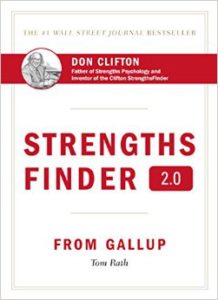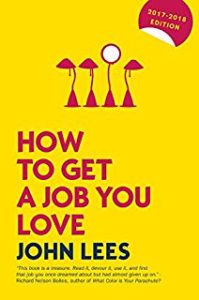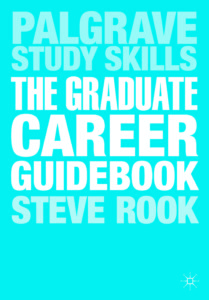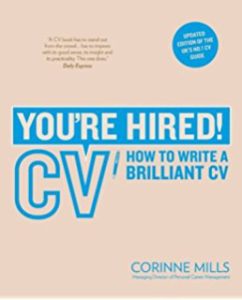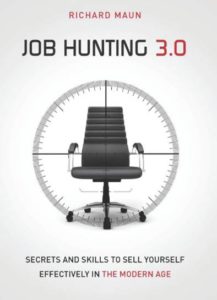Welcome to the 14th episode of the Graduate Job Podcast.
This week is a books special, where I cover the 7 books that I think every job seeking graduate should read. I cover books for all stages of the recruitment and job hunting process, from the beginning when you might not know where to start, through to how to create an amazing CV, and for the final stages of the assessment process of interviews and assessment centres. Everyone is a winner and reading any of them will enhance your job hunting prowess. If you’re currently looking for a book to get your job search back on track, then this is the episode for you.
You can download the podcast to your computer or listen to it here on the blog. Additionally, you can subscribe via Spotify, iTunes or Stitcher radio.
MORE SPECIFICALLY IN THIS EPISODE YOU’LL LEARN ABOUT:
- Check out the ‘How to Get a Graduate Job’ step-by-step online course at https://howtogetagraduatejob.com/
- Don’t even think about applying for graduate jobs until you’ve read my free guide, ‘The 5 steps you must take before applying for graduate jobs’. Click here NOW. It will completely change the way you apply for jobs!
- Would you like a free 30-minute video coaching call? Simply select a time that works here https://calendly.com/gradjob/ We can go over your CV, application, or anything that you are struggling with.
- Strengthsfinder 2.0:
by Tom Rath
- How to Get a Job You Love by John Lees
- You’re Hired! CV: How to write a brilliant CV
by Corinne Mills
- Winning That Job: A Kill or Be-Killed Guide to Job Search and Interview Preparation for Students and Graduates
by Jon Gregory
Transcript – Episode 14 – 7 Books every graduate should read
James: Welcome back everyone to the Graduate Job Podcast, with your host James Curran. The Graduate Job Podcast is your weekly home for all things related to helping you on your journey to finding that amazing job. Each week I bring together the best minds in the industry, speaking to leading authors, entrepreneurs, coaches and bloggers who bring decades of experience into a byte size weekly 30 minute show. Put simply, this is the show I wish I had a decade ago when I graduated.
On today’s show we have a very special guest…..ok, we don’t. As today you have the pleasure of my dulcet tones as I take you through the 7 books that every job seeking graduate should read. We cover books for those who haven’t got a clue what they want to do, to those ready for CVs and covering letters, through to how to smash the interview and assessment centre stage. There is something for everybody, and everyone is a winner. See it as the Oscars of the graduate book world, just without the tears and dodgy acceptance speeches. So let’s get to it.
Welcome everyone to episode 14 where we will cover the 7 books that I think every graduate should read. Every day I have about a 2 hour commute, and when I’m not distracted by the Metro or the evening standard I spend it reading, and since I started prepping for the Graduate Job Podcast I’ve read a lot of books focussed on getting a job, and today I will take you through my favourite 7 that I think every graduate should read on their job hunting journey. But before we start, I want to caveat this list. Firstly, just because a book isn’t on this list doesn’t mean it’s not a goodie. Reading any book on how to get a job is better than not reading one, so just because it’s not on this list doesn’t mean it’s not a cracker, and if you think it should be on the list do let me know.
Secondly, I’ve gone for more general books that are applicable to a wider audience than some of the more specific ones we’ve featured on the show. For example Sarah Stimson’s book on getting a job in PR and Jennifer Holloway’s book on branding are crackers, but since they’re quite specific I’ve left them from the list.
Finally, this is of course a subjective list, each of these books resonated with me in different ways and I think will appeal to different people at different stages of their job hunting journey, and make no mistakes, getting a job is a journey and where you start from is going to be a different place to where you end up at the other end of the process. As such I’ve chosen books that appeal to people at each stage of the process, from the I’ve just graduated and I haven’t got a clue stage, through to right I’ve got an assessment centre, how do I smash it. So, without further ado, lets crack on to book number one…..drum roll please……its.
Strengthsfinder 2.0 – by Tom Rath. Regular listeners will know that recently a recurring topic has been about as a first stage before you start rushing headlong into applying for jobs to take a step back, and think about what exactly it is that you want from a job. David Shindler in episode 6 discussed it very eloquently about the what can be a fundamental mismatch between what we think we want from a job, and what we actually want. If your core values of who you are as a person don’t match those of the job, or those you have to adopt to do the job then it’s not going to be a happy or productive experience for either party. Jennifer Holloway talked in detail about this as part of her Brand Pyramid, and in fact Strengthsfinder 2.0 was her recommendation of a book to read. So, what is it and why should you read it? Well, it’s a cool book which you should always buy new as it comes with a code hidden at the back. This code then gives you access to a website where you answer hundreds of questions about yourself and what you like. It’s one of those sneaky tests where it asks you the same question is many different forms and in lots of different ways. Be truthful, answer honestly, as you’re not looking to fool anyone, this is a tool which will help to show you what your strengths are. One of the ideas behind the book is that to be successful you should concentrate on improving your strengths instead of trying to improve your weaknesses. As they say, ‘you cannot be anything you want to be, but you can be a lot more of who you already are’. So what you do is answer the questions and then it tells you from the 34 different strengths categories ranging from achiever, activator, developer through to strategic and woo (which stands for winning others over) which 5 categories in ranked order that you are most suited to. Then for each of those categories it has a description of what that strength looks and feels like, and action tips for how to build on that strength. So when I did it my 5 strengths were individualization (leads you to be intrigued by the unique qualities of each person), positivity (generous with praise, quick to smile, and always on the lookout for the positive in the situation), learner (Love to learn), empathy (You can sense the emotions of those around you.) and developer (You see the potential in others) Combination of those probably explains why I started the podcast. So why should you read this book?
As Aristotle said, ‘Knowing yourself is the beginning of all wisdom’.
1 – Self awareness of your strengths and also your values is crucial in your career. For a fulfilling career you want your strengths and values to be aligned to the work you’re doing, so you enjoy it, and also because when that’s the case you’re more likely to do an amazing job.
2 – As I mentioned if you know what you’re good at you can focus on making them amazing, and world class, instead of taking your weaknesses from being poor to mediocre
3 – In an interview very few people can provide a good answer to the question, what are your strengths? Most people will just be grasping about. If you know what your good at you will be to convey it verbally, and also know what aspects to emphasize in your CV
So moving through the job hunting journey, the next couple of books I’d recommend are for people who currently have the knot of worry in there stomach that says, how do I start my job hunt? I’ve graduated and I have no idea what to do next, or this job isn’t what I thought it would be, there has to be more to life than this!
The next book I recommend is How to get a job you love by John Lees. The reason I picked this book is I think it’s ace for everybody listening who is unsure where to start their job hunt, or are in a job that isn’t giving them any satisfaction and they’re thinking, there has got to be more to work than this. If you’re in that position how to get a job you love could be perfect for you. It’s a fairly weighty book and what I really like is that it spends the first 175 pages, so over half focussing on the aspects of job hunting that most candidates and also books ignore. Namely getting you to actively focus on your career and job, what is it you want from work, what is it you want from a job? I challenges you to think about how happy are you in work, the reasons why, and limiting beliefs you might have that are holding you back. If I’ve made that sound a bit heavy and new age, it’s not at all, it’s practical, easy to follow and full of examples for you to work through. For listeners just finishing uni the chapter ‘where next after finishing your studies’ will be especially useful. As is the chapter called ‘your career hot buttons’ which guides you through a series of questions which challenges you to think about your motivations for work. Is it money, is it security or meaning and purpose. Couple an understanding of these hot buttons with the strengths from strengths finder 2.0 and u will be flying!
So why read this book? Firstly because it’s a great guide for people who feel lost and stuck and don’t know where to start. Follow the exercises in this book and you can’t help but have a better idea of what you should and shouldn’t be doing with your working life
Which is linked to the second reason why I like this book, namely, it’s practical. It’s full of exercises for you to do, work through and think about. The caveat with that is that you’ll get out what you put in so make the effort and fill them in. Don’t just skip past them thinking you will do them later, as we both know that’s not going happen.
Thirdly I really like this books focus on your mind set and which of your beliefs are holding you back, and importantly what you can do about them. It talks about the importance of language through to discovering the different types of intelligence and which is strongest for you. All in all it’s a great book, and one which will help you to develop the tools to plan and develop your career successfully.
The third book on my list is also an excellent place to start if you don’t know where to start. It’s ‘The Graduate Career Guidebook’ by the effervescent Steve Rook. We had Steve on in episode 4, and his passion shone through at every step. Definitely worth a listen if you haven’t already done so. Steve’s book is aimed at graduates and takes them on a journey post-graduation from planning a career through all aspects of the graduate application process. So, why should this book be on your bookshelf?
1 –The first reason I recommend the book is that as the title implies, it’s aimed solely at graduates. It’s focussed on the issues that many graduate face, namely finding your path after university, taking control of your career and choosing a role and career for yourself. Its focus on graduate jobs means that it contains really useful advice on graduate application forms, interviews, assessment centres and the like. All written for and aimed at graduates, as such its especially practical and useful. I really like the section on online application forms as well as describing what you need to do, it contains actual examples of a poor answer and a good answer for you to compare and learn from.
2 – The second aspect I like is that, is that as with ‘How to Get a Job you Love’, it starts from a base of not knowing what you want to do. This is a position that many of the candidates I coach start from. Being overwhelmed at the range of possibilities in front of them and feeling daunted about how to break it down and move forward. Steve’s book in its initial chapters covers this well and I like his ‘Self-Assessment’ exercises for candidates to work through to help them to crystallise their thinking about what it is they might want to do and how they can get there.
3 – The third reason I think its great is that it contains a big section on the end on entrepreneurship. I think this is an often overlooked section for graduates and most resources you find tend to focus graduates solely down the path of getting a job. It’s never been easier for people to set up a business particularly through the internet, and I think speaking from a UK perspective here, as a country in entrepreneurial stakes we definitely lag behind other countries such as the US, with students really being talked down the path of getting a job. So I like Steve’s section on starting your own business as it proves a nice counterpoint to that argument. And if you are going to start a business, there will never be a better time than when you finish uni and have (generalising here) no kids, mortgages or other exciting things that can hold you back in later life.
So having sorted your life out, the next stage of the process for many of you will be to begin to apply for jobs, and most likely this will begin with a CV and covering letter. For that reason, let’s turn to book number 4 which is, ‘You’re Hired, How to Write a Brilliant CV by Corinne Mills’. While pretty much every book on the list talks about CVs in some form, this book is exclusively focussed on them and as such goes into much greater detail on them. It’s split into 4 sections which will take you through the CV writing process from a blank page to sending it off. Section 1 ‘Researching you’ covers everything that needs to go in to a CV, and the things that should definitely not be there, and also how to highlight your skills and achievements. The second section ‘Match making – Showing you a perfect fit’ covers how to decode job adverts and use job descriptions effectively to tailor your CV specifically to the employer’s requirements. The third section ‘Designing your CV’ covers the nuts and bolts of what needs to go into it, from language to structure. And finally the 4th part ‘How to use your CV’ is on how to get it out and about to the world. So that’s the core structure of the book. What I like about it and why you should read it:
1 – Firstly, I like how it goes deep into CVs, with 200 pages devoted solely to the topic. As such it covers them to a degree that many other books don’t. So if your job hunt relies heavily on having a cracking CV, then this is definitely an area where you want to focus some serious time and attention. The book is also practical, especially in the early stages where it has examples for you to work through with respect to skills and qualification, your personal statements etc. So again, it’s one where to get the most out it, you need to pull your finger out and do some thinking.
2 – Second thing I like is that it doesn’t just tell you how to format your CV, it shows you. It has tons of different examples of CVs, from different industries, from recent graduates to creative industries. So you get lots of examples to give your ideas about the different styles and formats out there.
3 – Finally I particularly like the chapter on language, and the different words to use to reinforce the image you want to portray. Do you find yourself using the same words to describe your achievements? Not anymore with Corinne’s jumbo list of action words for your CV, you’ll never be using the word twice. And it also has great lists of useful adverbs to use and toxic words to avoid. The language you use can really set your CV apart from the pack, so it’s a really useful little chapter.
So there you go, You’re Hired CV, by Corinne Mills, my top tip for sorting your CV out. Don’t also forget to check out episode 10 with Lis McGuire where we examine what makes a great CV.
The fifth book on the list covers a broad area of job hunting, and careers and is……’Job Hunting 3.0 by Richard Maun’. The eagle eared among you will remember that Richard was a guest in episode 3 when we covered his 3 job hunting secrets which I will get to later. Again this book is a quite weighty coming in at nearly 300 pages so you’re definitely getting your value for money. The book is titled as the essential manual for modern day job hunters and it does what it says on the tin really. Although it’s not aimed specifically at students or graduates it has a wealth of information, from getting started, through CVs, interview skills, and also self-awareness for when the road might get tough and you might suffer setbacks.
What I like about this book and why you should buy it are
Number 1 – Because I love the overall level of positivity in the book. From the preface pointing out how you can get the job, and how the odds are better than you think, through to the first chapter called ‘You’re OK’. The book is positive throughout. I like the affirmations that is has to help you stay in a okay place, but it’s not just woo woo positive thinking. It describes the process of job hunting as a journey, one you need to take control of as you are responsible for your actions. I like his comment that, ‘there is nothing more irritating to me than someone who says, ‘oh you simply must do this like this’ there are no musts, ought’s or should here, and at all times your free to make up your own mind and feel the path that works best for you, in your country in your situation’.
The second thing I love are the 3 secrets to Job hunting which Richard covers, namely passion, networking, and practice. We covered these in episode 3, of the podcast so I won’t go over them again but each of them are brilliant and will really help you to accelerate your job hunt.
And the third things I like…….well, to be honest I got bit stuck on the third specific thing I liked, because there were lots of choose from. I like how it contains practical real life stories, I like how it’s broad and covers lots of different topics, I like its easy and personable style, and I like the tools it describes to help you on your job hunt. So all in all I think it’s an excellent book to add to your book shelf.
So 5 books down, 2 to go. The first book Strengthsfinder 2.0 covers thinking you need to do pre-applying. How to Get a Job You Love and The Graduate Career Guidebook are both excellent at helping you with where to take your career. While Job hunting 3.0 covers the what to do with your career and also steps of how to get there. The next two books are brilliant for when you have a career and job in mind and just need the help the specific help in how to get them.
So the 6th book I recommend is definitely a case of not judging a book by its cover, it’s…….‘winning that job, a kill or be killed guide to job search and interview preparation for students and graduates’ by Jon Gregory, Jon was the first ever guest we had, so check out episode 1 on interviews if you haven’t already done so. I really enjoyed this book, and once you know what job it is that you want to get, then this book is brilliant for giving you the skills and advice to go and get it. It’s a big book, a4 size and over 200 pages of just text, so there is a lot of content in there. As a caveat though although I really enjoyed (hence it’s on this list) it might not be for everyone, there is a bit of blue language in there for the adults, and it doesn’t pull any punches in its analysis of what you need to do to get the job, if you don’t want to take personal responsibility for your job hunt, then this isn’t the book for you.
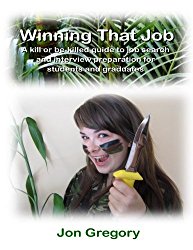
In terms of 3 reasons why you should read this-
The first thing I like is its attitude and the metaphor running through the book. As the title says, this is a kill or be killed guide. The premise is that the job market is a battleground. there are hundreds, thousands of other candidates out there who are all the same as you, they look like you, are the same age as you, have the same 2.1 as you. And you’re in a battle with them for each job and only the strongest can survive. The book sees each round of the application process as a battleground where the numbers are whittled down with only the winner’s left standing getting the job. It focuses on what you can do to ensure that you are one of the few winning the job. Now, this isn’t a metaphor for everyone and the book acknowledges that, but I bet that if you like it, you will really really like it.
2nd reason to read this book is that it’s simply got lots of excellent content, focused solely at graduates and students and the graduate application process. I’ve raved about the spotlight method for memorising answers for interviews several times before, check out episode 1 if you don’t know what I’m talking about. But all through the book it’s got insights and advice which are really going to make a difference to your performance, whether it’s online applications, interviews or assessment centres.
Finally what I think is great is that this book doesn’t just focus on getting into the big graduate schemes. Candidates I coach can obsess about getting on a big graduate scheme at a well-known firm and are almost unaware that in terms of numbers the vast majority of jobs are with small and medium sized firms where the opportunities to grow and take responsibility are just as large. As such chapter 3 on how to search for jobs is really valuable, as it focuses on the hidden job market, opening up your options, being proactive, why you should ignore job adverts and instead get yourself on a short list of one. If you currently have a myopic focus on graduate schemes then this chapter could be really valuable in opening your eyes to opportunities that you might otherwise have missed. So, get yourself on Amazon and get yourself a copy.
So another book focussed solely on the latter stages of the recruitment process and my final recommendation is….‘Now you’ve been short listed, your step by step guide to being successful at interviews and assessment centres by Denise Taylor’
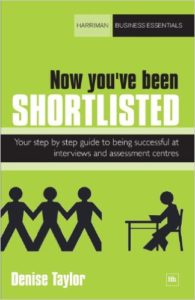
As I mentioned, Denise’s book focuses solely on the final stages of the recruitment process, namely psychometric testing, assessment centres, and interviews, so if you are quite away along on your job hunting journey this could be the perfect book for you. Denise’s background in having designed 100s of assessment centres and been head of assessment training for major firms, combined with her work as a career coach means she is well placed to pass on lots of great advice, and that’s what she does in this book. What I liked about it is it gives you that perspective of what the companies are looking for from you at each stage of the process, so you can understand, not just what you should be doing, but why. Denise was my guest on the second episode of the show when we talk about assessment centres, so if you haven’t already make sure you give that a listen.
The first reason I recommend this book is if you’ve got your first assessment centre coming up and you don’t know what to expect, then this book is perfect for you. It will guide you through each step of the process, from what to wear and how to get in the right frame of mind, through to each of the exercises and how to perform and be the best version of yourself. As a result nothing on the day itself should come as a shock so u can relax and concentrate on being amazing.
The second reason is that this Denise provides great advice from the other side of the table about what recruiters are looking for and what you need to do to impress them. Having designed and run assessment centres Denise is ideally placed to let you exactly what the recruiters are looking for. If you can go in armed with this knowledge, it will put you ahead of your competitors on the day.
And finally, ‘Now You’ve Been Shortlisted’ is simply a very well written and structured book, it’s clear, easy to read, it breaks each of the topics down into nice concise sub chapters, with top tips at the end of each chapter, and above all it’s packed full of practical, actionable great advice. So if the email inviting you to an assessment centre has pinged into your inbox, this could be the book you need.
So there you go, 7 very different books, but all equally excellent, and everyone a winner. In terms of key things to takeaway from this episode, I’ll keep them short because I’m sure you’re fed up of hearing my voice, I know I am. The key takeaway for me is that it doesn’t matter which book you read as long as you’re reading quality material which is going to help you at which every stage of your journey you’re at. Second, for those of you listening who say, I haven’t got time to read, Sorry, it’s an excuse. If you read the metro going into work/uni you have time. If you read the Daily Mail online with its sidebar of doom/BBC sport/buzz feed, insert the name of which ever click bait website u visit u have time. If u play candy crush on your phone you have time. If u check your mail/Facebook/Instagram 20 times a day……look you get the message. You need to take control of your job hunt, because if you don’t, nobody is going to do it for you. If u find yourself procrastinating check out episode 11 with Michael Tefula, and put into practice some of his top tips, and begin to make time to read. You won’t regret it!
Finally. 3rd tip is use these books properly when u read them, write in them, highlight them, scribble and underline them. Make them easy to reference for when u need to pick them up for some last minute revision. They are all books you will want to keep and refer back to, so make them your own. And if there is an exercise in the book which you need to fill in. Don’t skip over it. Do it there and then, because if it’s in the book, it will be in there to help you.
So there u go episode 14 done. Hit me up on twitter @gradjobpodcast let me know what u think of my selection, what do you like and what have I missed off. You can find a full transcript of everything that we’ve talked about and all the books at www.graduatejobpodcast.com/books. If you’ve enjoyed the show please leave a review on ITunes or Stitcher radio, we really do appreciate it and it helps the podcast to stay high in the rankings. If you’ve not already subscribed via ITunes or Stitcher radio, you need to sort that out, it’s the easiest way to get each episode delivered to you for free and to make sure that you don’t miss a thing. Join us next week when we speak to author Susan Griffith and cover how to plan a CV enhancing gap year. I hope you enjoyed the episode today, but more importantly I hope you use it and apply it. See you next week.

